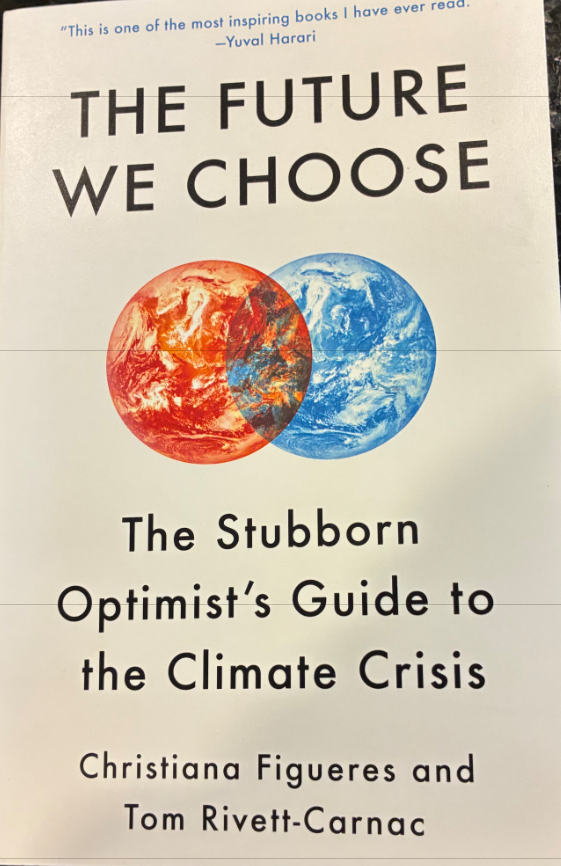Commentary
What’s Your Local Third Space?

This is one in a continuing series of educational columns about fostering environmental stewardship and leadership coordinated by ACES — the Alliance of Climate and Environmental Stewards.
Third Spaces are informal public spaces that exist outside of the home ("first space") and the workplace ("second space"). These environments foster social interaction, community building, and informal gatherings.
Characteristics of Third Spaces include:
- Neutral ground: no one owns the space, and it is open to anyone.
- Social leveling: people interact on more equal terms.
- Conversation as the main benefit.
- Accessibility, both physically and financially.
- Playful and relaxed atmosphere.
- Regulars feel comfortable, at ease, and connected.
Examples of Third Spaces: coffee shops, libraries, bars, churches, gyms. These spaces play a vital role in the social fabric, offering opportunities for people to build meaningful connections. Third Spaces are key to sustainable living because they promote shared resources and sustainable practices. By reducing the need for individual consumption e.g., shared tools, shared workshop, these spaces lower energy and resource use. They encourage sustainable transportation through walkability, while supporting local economies by fostering small businesses and community driven initiatives. Many Third Spaces serve as hubs for sustainability education, skill-sharing, and zero-waste practices.
Tinkerhaus Community Makerspace in Newburyport is a Third Space for people who crave creative growth. Whether that person is a child who wants to create a village of clay creatures or a retired person who wants to learn woodworking, we provide a judgement-free zone for supporting their practice. We welcome the person who comes to sewing class to learn to hem their pants but falls in love with color and texture. Or the person who starts out wanting to sand down some old doors and ends up building intricate furniture pieces. We offer these people the environment and the repeated opportunities to fill that need, to grow their creativity, and to connect with people who relate to them.
Last spring we did a project called Bikes and Blooms through a grant from Resilient Newburyport. We built bike parking stands and raised planting beds from wood for the community with a multigenerational group over the course of several days. The kids ranged from 5 to 16. The adults of all ages were a mix of professional and amateur woodworkers and volunteers. The weather did not cooperate at all and frustrations with schedules and materials were high. But the satisfaction of people who powered through tasks that were difficult and continued through some discouraging moments to complete what they had set out to do was immense. And the products are very useful in growing vegetables and encouraging cycling.
This summer was our busiest yet. We ran eight sessions of weeklong programs for kids, several in conjunction with Newburyport Recreation Services, plus we hosted Family Connections of Triton for an early literacy maker series. You might wonder how these activities could be part of a Third Space situation with adult community members? Well, it turns out people are really interested in what everyone else is doing, because the older members who still had plenty of access to their equipment liked to check on what the kids were up to. One of our senior woodworkers was delighted to find out about our kid’s bandsaw class and jumped right in to help. The kids were also excited to see what the adults were making. But the direct multigenerational interactions were the sweetest. Watching our engineering student summer employee teach older women how to create labels for their grandkids’ reusable snack boxes on the Cricut cutter or 3D print a tiny lighthouse for a kindergartener was great. But watching him become a first-time student in the woodworking shop was even better.
Mary McDonald is the director of Tinkerhaus and can be reached at mary@tinkerhaus.org. You are invited to see if Tinkerhaus is the Third Space you’ve been needing. Fall programming is up on www.tinkerhaus.org or come visit at 3 Graf Rd, suite 11.
ACES and its Youth Corps invite you to stay updated on environmental matters by subscribing to our monthly newsletter via the “Join Our List” link on this page. Please consider joining our community of stewards who commit to Make Every Day Earth Day by contacting us at acesnewburyport@gmail.com. We can make a big difference together.
This educational column first appeared in The Daily News of Newburyport on October 4, 2024.
.svg)





